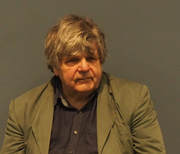|
I’m fond of telling the story of a particular moment that won me over to the idea of the community play
In 1981 I had travelled down from Norfolk to Dorset to see a new phenomenon I’d been hearing so much about, Ann Jellicoe’s third community play, The Poor Man’s Friend written for Bridport by Howard Barker. It was not only the first community play I’d seen, it was the first promenade performance. I stood in the hall of the Colfox School with stages on three sides surrounded by cast and audience. Scenes happened all round and in our midst. Howard had written a play around a simple fact he’d been given about a local Bridport boy of 14 in the 18th century who had been hung for setting fire to field of flax. The moment came when the judge passed sentence. “Sylvester Wilkins, you have been found guilty of the crime of arson. To see one so young and so cruelly misled as to attack the law of property is to know the breadth of the current delinquency. My only duty is to pass the sentence which the law awards.” As he put the black cap on and pronounced the boy’s execution the cast around me became restless. A young girl of about eight and her mother, both in eighteenth century costume, were standing beside me. The girl tugged at my sleeve. “Why?” “Why would they do that?” I didn’t know if I should respond. A choir sang: “Sylvester they didn’t want to do it, but old England says your dying, will make sure no one does it again.” The girl asked more insistently “Is that true, why does he have to die?” She was now clearly demanding an answer. I looked to her mother for help, it wasn’t there; only a look that said “Well answer her.” I can’t remember what I said, probably something like: “No, it’s not just” What I do remember was an overwhelming feeling of helplessness. I felt implicated in the drama, I felt that I should somehow be doing something. I tell the story often and keep coming back it because; it seems to me, everything potent about the community play is there in that one moment. What was exceptional about the experience was that she was asking me not just to respond imaginatively, but creatively. Almost all of us have this power of imagination, by which I mean the ability of seeing in our mind’s eye. Through imagination we can all call to mind people, events, feelings and experiences that are not present here and now. Some people argue that imagination is what separates us from other animals but as I don’t know what goes on in the minds of animals, I wouldn’t want to say; my instincts tell me they can imagine, who hasn’t seen a seen dog apparently chasing cats in their sleep? But creativity is a step further. Imagination can be an entirely private process, you can close your eyes and be in a fever of imagination and no one would know it. Creativity is different; it requires action and has an impact on the outside world. Normally when I go and see a play I respond imaginatively, but in the instance of the Bridport play the young girl was asking me to act, to take part. It opens up the possibility of the audience becoming performers. This apparent tiny act of a member of the community playing a character and treating an audience member as a character in her dramatic world has repercussions and throws up a huge array of possibilities. Add the fact that audience and cast are mostly from the same community and it goes to the heart of what makes these plays so extraordinary. It’s the implication of that moment and hundreds of other similar moments since that I want to start exploring over the coming weeks. I’d like to have your thoughts and experiences too. Have there been moments in theatre when you’ve felt implicated, responsible for the outcome of the drama you were watching or felt the impulse to take part and what was it that provoked it?
0 Comments
|
DIRECTOR'S
|

 RSS Feed
RSS Feed